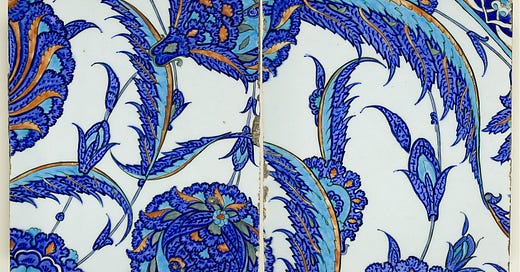Let’s begin with the first line of Don Quixote: "Somewhere in La Mancha, in a place whose name I do not care to remember, a gentleman lived not long ago..."
It’s a beautiful, striking opening to a story.
Somewhere in Europe this autumn, during a book tour, in a place whose name I do wish to remember but prefer not to disclose, I took a cab to the train s…





